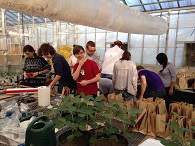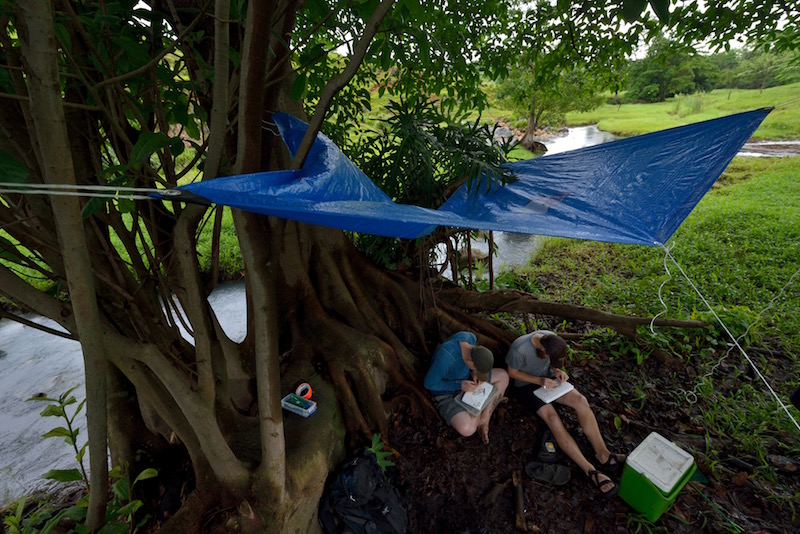Featured Lab
Dr. Michi Tobler
The Tobler lab's research seeks to understand patterns of and mechanisms underlying biological diversification. Specifically, we are interested in how ecological and evolutionary processes lead to (i) genetic and phenotypic variation within and among populations, (ii) adaptation to complex selective environments, and (iii) reproductive isolation and the formation of new species. To address these questions, we particularly focus on extremophile organisms that can withstand physicochemical stressors lethal to most others. Extreme environments provide ideal systems for an integrative approach to study evolution, as their selective regimes are clearly defined and replicated, enabling hypothesis-driven tests of effects at all levels of biological organization and facilitating analysis of convergent evolution. Among the most extreme freshwater ecosystems are springs rich in hydrogen sulfide (H2S), a potent respiratory toxicant lethal for most animals in micromolar concentrations. Few metazoans have successfully colonized sulfide springs, even though such springs occur wordwide. Fish of the family Poeciliidae are among the most prominent inhabitants of sulfide springs, as several species have colonized and adapted to sulfidic conditions. Most of our research investigating mechanisms underlying adaptation and speciation focuses on three evolutionarily replicated sulfide spring lineages of the genus Poecilia in Southern Mexico, while projects illuminating the nature of convergent evolution rely on a broader taxon sampling of poeciliids throughout North America, the Neotropics, and the Caribbean. For more information, see http://www.sulfide-life.info.
Dr. Ari Jumpponen
Fungal Ecology Research Group’s research aims to identify environmental selection processes that dictate the extant community composition and their dynamics in both applied and basic research settings. We currently focus on a recently funded project that characterizes the rhizobiomes of common, widely distributed, and dominant grasses in grassland ecosystems. This project also includes a component that aims to answer a question about “core rhizobiome” in the US and globally using collaborations in Europe, Asia, Australia and Africa. In a nutshell, this unique project is among the very few to so broadly target rhizobiomes and seek for their generalities. Further, this project accumulates and establishes a baseline of data that can be utilized to refine questions about rhizobiomes. To discover more about Dr. Jumpponen's lab, visit his lab website.





